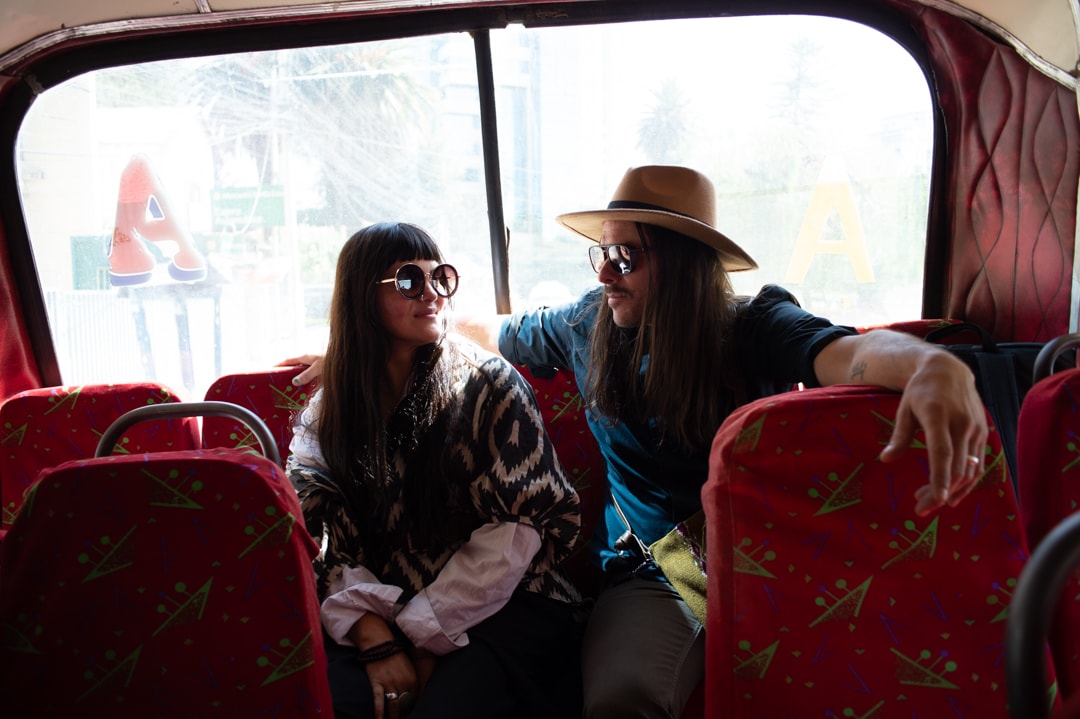
Ibelisse Guardia Ferragutti & Frank Rosaly Announce ‘MESTIZX’ + “DESTEJER” Out Today via International Anthem
TRACKLIST
INVOCAÇÃO
DESTEJER
TURBULÊNCIA
BALADA PARA LA CORPORATOCRACIA
MESTIZX
BARRO
SABER DO MAR
BLESS THEE MUNDANE
DESCEND
WRITING WITH KNOTS
SIRINUS
Today, Bolivian-born singer and multi-medium performer Ibelisse Guardia Ferragutti and renowned Chicago expat jazz drummer Frank Rosaly announce MESTIZX (out May 3 via International Anthem / Nonesuch), their debut full-length album as co-composers, arrangers and musicians. The album’s lead single “DESTEJER” is available today on all music platforms, along with a video filmed near Ferragutti’s hometown in Cochabamba, Bolivia, by director Espectador Domesticado. Listen to “DESTEJER” here.
Partners in both marriage and art, the Amsterdam-based Ferragutti and Rosaly dove into the sounds of their respective ancestral roots in Bolivia, Brazil, and Puerto Rico to create a deeply personal meditation on decolonization and the defiant power of ritual and protest. They chose the title MESTIZX – a non-gendered version of the sometimes slurred Spanish colonial word for a “mixed person” – as a means of both challenging and embracing the liminality of their identities and artistic practices.
Lead single “DESTEJER” is a perfect introduction to the sound world of MESTIZX, with propulsive rhythms led by Rosaly on drums with guest percussionist Mikel Patrick Avery, piercing cornet leads from International Anthem labelmate Ben LaMar Gay, and Ferragutti’s soaring, sonorous vocals. Sung in Spanish, her refrains translate to: “Mending my words, I embrace the knowledge of my body, unweaving the homogeneity… Tentacular roots, they take me to my ancestors… Tectonic ancestors, Tectonic ancestors.”
“DESTEJER” is also released today via a stunning video filmed at Corani Lake near Ferragutti’s hometown in Cochabamba, Bolivia. In the video, Ferragutti and Rosaly pose still or move slowly in harmony with wide shots of the epic Andean landscape. Bolivian director Espectador Domesticado says about the work: “We were interested in thinking about time, the dialogue with it, building in Corani Lake our own imaginary, our own temporality, a kind of limbo, where these two wandering characters wander without any apparent purpose or direction. We wanted to give a lot of space for contemplation in editing, during the filming days we were seeking to capture that unexpected gesture, prolong the small actions, give voice to the landscape as if it were just another character. We invented a ritual where Ibelisse can recover certain memories of the territory, through a ritual, as an alchemist where she melts some pieces of tin that she finds in the lake, and when and it solidifies they can read in the silhouette of this metal, as a record of the past.”

Watch the music video for “DESTEJER” here.
The album was produced and recorded primarily at International Anthem Studios in Chicago, where Ferragutti and Rosaly were joined by a community of musicians and beloved friends including Matt Lux, Avreeayl Ra, Ben LaMar Gay, Daniel Villarreal, Bill MacKay, Rob Frye, and Mikel Patrick Avery, with additional contributions from Chris Doyle, Guilherme Granado, Viktor Le Givens and Fredy Velásquez.
The music creatively infuses Latin rhythmic patterns and oblong swing from pre-and post-colonial Latin America into a collision of avant jazz, art punk, Chicago post-rock, bomba, plena, cumbia, Andean, minimal, electronica, and folk. A wholly original but undeniably universal sound – both of-the-moment and alluringly futuristic – MESTIZX contains points of reference and resonance for fans of Juana Molina, Café Tacvba, Max Roach & Abbey Lincoln, Liquid Liquid, Arto Lindsay, As Mercenarias, The Ex, Tortoise, Tom Zé, Elza Soares, La Mecanica Popular… It’s a vast, vibrant and encompassing spectrum of sounds, but at its core MESTIZX is a lucidly conscious collection of auto-biographical statements from Ferragutti & Rosaly on the deeply personalized effects of colonialism on geography, history, and identity. Despite its heavy subject matter, however, MESTIZX finds a lifeline in communal, celebratory, soul-bearing and movement-inducing music.
Rosaly says: “I grew up quite Puerto Rican in my home, but was taught to mask it outside my home. I wasn’t allowed to speak Spanish, so the drums eventually became my language, secretly tying together my own feeling of connection to mi tierra. This record is the first time I actively give voice to the nuance within myself, allowing me to take ownership of this in-between, which is what this album communicates for me… There is this unusual place that exists between these two cultures, of which I am both. There is a complex story in that sliver of in-betweenness, worthy of giving voice to all of us that live in-between.”
Ferragutti adds: “My personal understanding is one that stems from being placed in between lineages that carry the colonizer and colonized, the oppressor and oppressed, the demon and the angel… thus by definition is tied to post-colonial social constructs which we as Bolivians have to step in, like a 500 year novel that goes on and on… We have access to many memories and traditions, but not really, because we don’t fully belong to any of those… This makes us feel we’re in a constant state of being the “visitors” and “outsiders.” On one hand, we are never truly part of one lineage. On the other hand, it makes us a travelers of worlds, storytellers in between multiple languages, cultures, and worldviews. We chose MESTIZX for this work as an act of recognizing the mixed state of being as a difficult and yet powerful one.”
For further reading, the artists wax eloquently and poetically on these subjects in their liner notes for the album.
